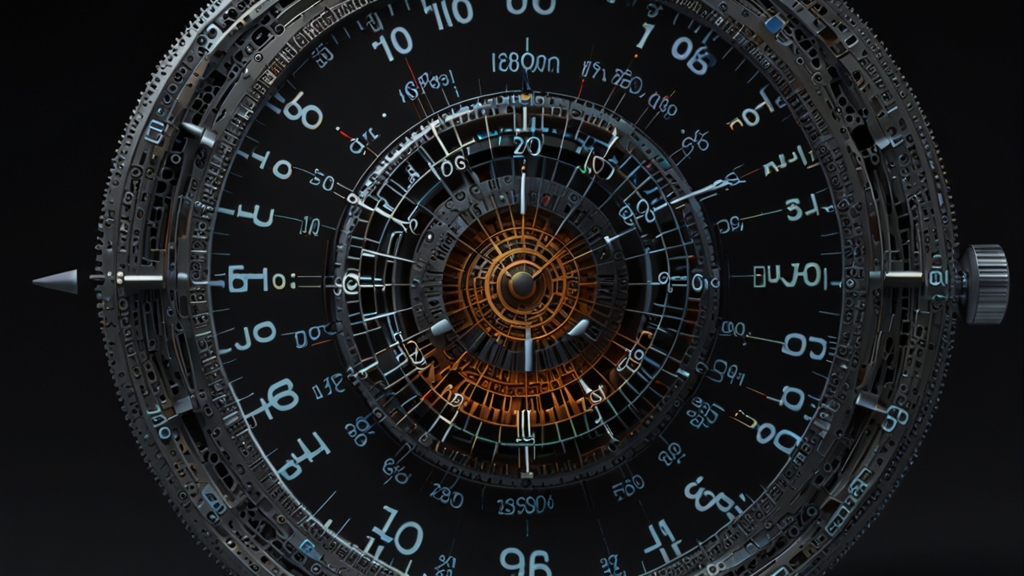Can Math Really Explain Love? Exploring Relationships Through Numbers
Love is often regarded as an enigmatic force, transcending logic and reason. It's a domain of poets and philosophers, not mathematicians and scientists. But, what if math could indeed provide some insights into the mysterious world of relationships and love? Can mathematical formulas, patterns, and algorithms shed light on this deeply human experience? This article delves into the fascinating intersection of love and mathematics.
The Mathematics of Attraction
One of the primary studies linking math to love and relationships is the concept of optimal stopping theory. This theory, which comes from the field of probability, can be applied to the search for a life partner. The principle is simple: when given a range of options, one can mathematically determine the optimal point at which to stop searching and make a choice.
"The optimal stopping rule suggests that to maximize the chance of finding the best partner, one should date and reject the first 37% of potential options. After this, one should choose the next person who is better than all previous candidates." — Fergus Hodgson, Economist
Although real-life decisions involve more complexities than a straightforward formula can account for, this theory provides a structured approach to the selection process in relationships.
Love and Game Theory
Game theory, the study of mathematical models of strategic interaction, also finds application in romantic relationships. The celebrated game theory example, the Prisoner's Dilemma, illustrates how two people might not cooperate, even if it appears in their best interest to do so. This concept can be applied to relationships, explaining certain dynamics and decisions within a romantic context.
For example, consider the scenario where both partners have to decide whether to invest time and effort into communication. If both decide to communicate (cooperate), the relationship strengthens. However, if one chooses to communicate while the other does not, the relationship may suffer, resembling the classic 'cooperate-defect' scenario in the Prisoner's Dilemma.
"Understanding the incentives and payoffs in a relationship through game theory can help partners make better, more informed decisions to benefit both parties" — Steven Strogatz, Mathematician
Algorithms and Online Dating
With the advent of technology, online dating platforms use complex algorithms to match potential partners. These algorithms analyze user data, preferences, and behaviors to provide compatible matches. Behind the scenes, mathematical models and machine learning techniques work tirelessly to increase the chances of successful relationships.
By leveraging vast amounts of data, these platforms can identify patterns that humans might miss. For instance, an algorithm might find that two users share an uncommon interest, suggesting this as a potential point of connection. The efficiency and effectiveness of these algorithms underscore how mathematics can play a crucial role in modern-day love.
The Limits of Mathematics in Love
Despite the intriguing possibilities, it's essential to acknowledge the limits of mathematics in explaining love. Emotions, personal history, and unique individual experiences contribute to the complexity of relationships in ways that numbers alone cannot capture. The subjective nature of love means that it will always retain an element of mystery, regardless of mathematical insights.
"Mathematics can provide a framework for understanding certain aspects of relationships, but it cannot capture the full breadth and depth of human emotions that define love." — Hannah Fry, Mathematician and Author
Conclusion
Mathematics offers fascinating perspectives on love and relationships, from optimal stopping theory to game theory and online dating algorithms. These mathematical concepts can provide structure and insight, helping to demystify some elements of romantic relationships. However, the essence of love remains a deeply personal and emotional experience, beyond the complete grasp of numbers and equations. In the end, while math can enhance our understanding, it is the human heart that truly navigates the intricate dance of love.












